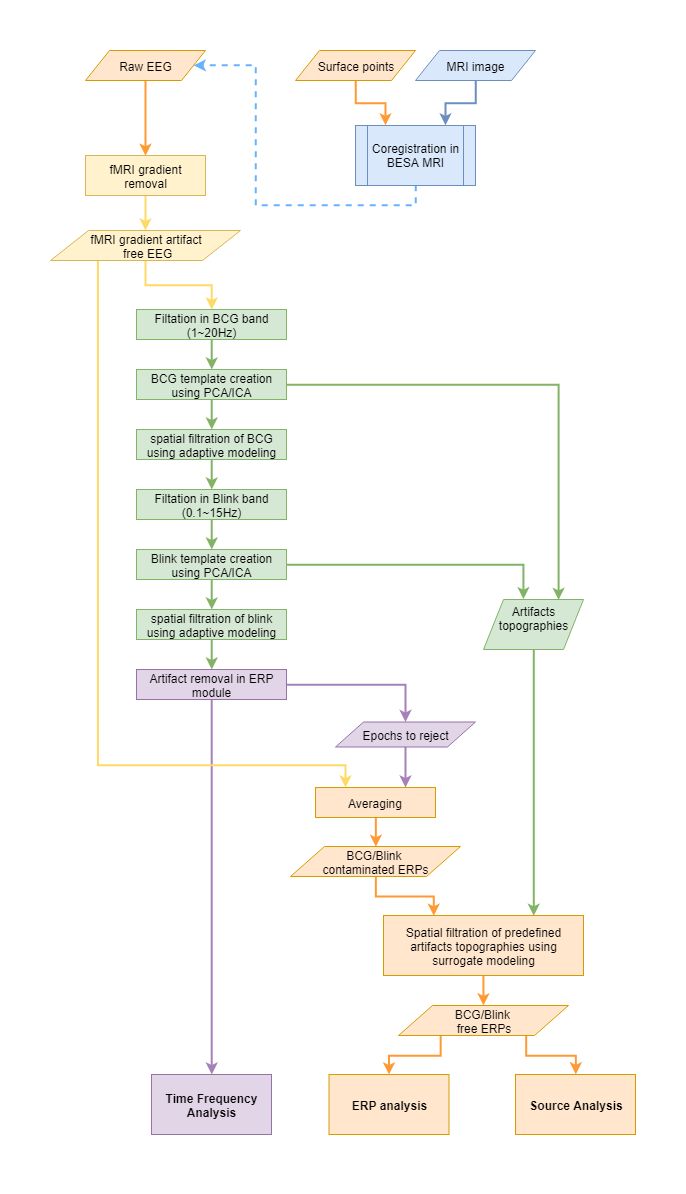Difference between revisions of "Pipeleline for simulatneus EEG-fMRI recording"
From BESA® Wiki
| Line 1: | Line 1: | ||
| − | Before you start | + | |
| + | == Before you start == | ||
| + | |||
• You have jitter between trials in ERP experiment (i.e. random value of ±200ms).Some further guidelines about paradigm creation can be found here: (Rusiniak et al., 2013a). | • You have jitter between trials in ERP experiment (i.e. random value of ±200ms).Some further guidelines about paradigm creation can be found here: (Rusiniak et al., 2013a). | ||
• The subject movement is limited to minimum. | • The subject movement is limited to minimum. | ||
Revision as of 17:47, 9 April 2018
Before you start
• You have jitter between trials in ERP experiment (i.e. random value of ±200ms).Some further guidelines about paradigm creation can be found here: (Rusiniak et al., 2013a). • The subject movement is limited to minimum. • Electrode to skin impedance is as low as possible. • EEG-fMRI recording session was long enough to allow for proper artifact creation. Usually experiment should last at least 6 minutes. • Especially for first few registrations repeat the experiment outside of the bore to compare results.
The recommended pipeline of processing EEG data registered during fMRI session looks as follows:
